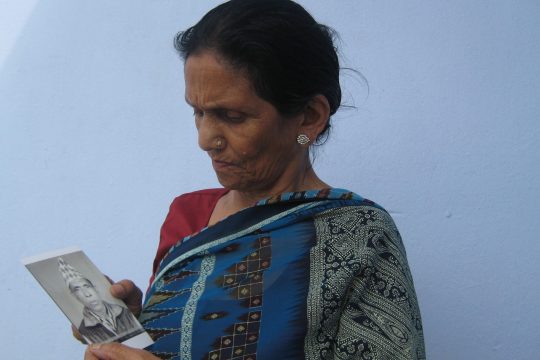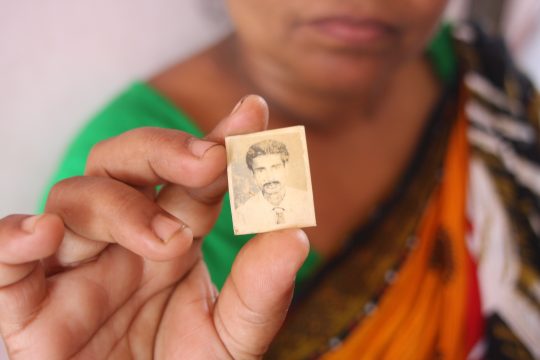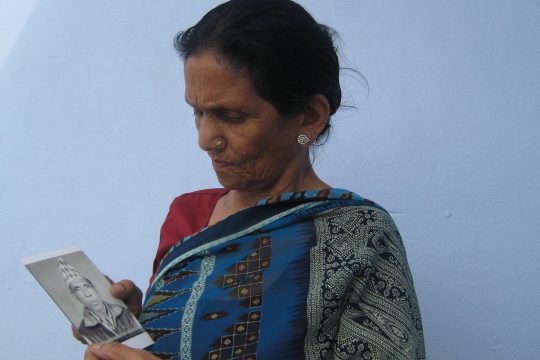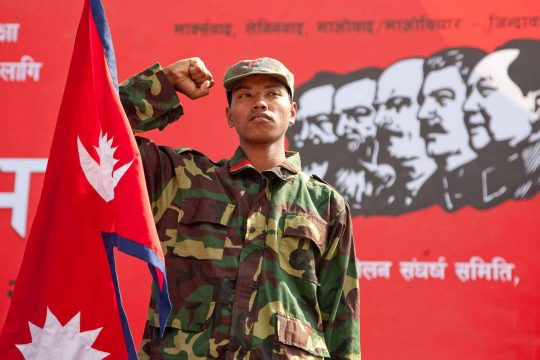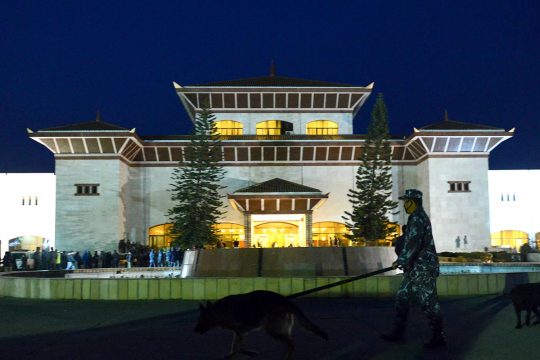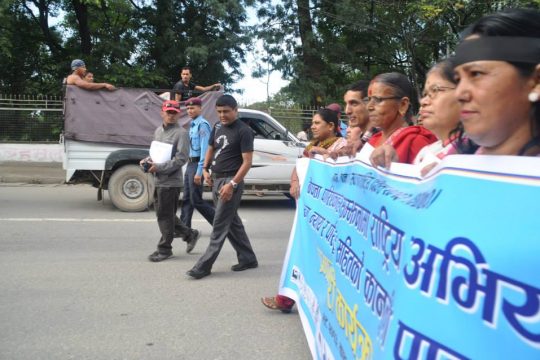On December 10th the World will celebrate universal human rights day. The occasion will be recognized in Nepal, but unfortunately democratization and human rights have become more buzzword than practice. The policies that have been implemented since the end of the People’s War have done more to protect powerful interests and hide the truth in the name of human rights than ensure those rights for the economically and politically marginalized.
Instead human rights serve as an agent of global capitalism that produces capitalist agents to intervene and destroy the peoples rights movement. It is seen that the human rights movement is becoming a part of problem because of its universalistic character with little localism and neoliberal policies. We can clearly see the effects of neoliberalism as the rich grow richer and the poor grow poorer, similarly the powerful remains more powerful and the marginalised become more marginalised. The states and powerful agencies in whatever cover are raging everywhere, oppressing the poor and making them more vulnerable in Nepal and elsewhere.
NGO
Nepal’s experience shows that the human rights NGOs have derailed the rights discourse, changed their status from activists to neo-liberal industrialists, abused a lot of resources in the name of human rights, sustaining their enterprises and destroying the human character of resistance. There are several challenges to advance the agenda of the people movement which appeared to be seeking to dismantle traditional structures of exclusion and elite domination at the top. Both the politics and social domain which are opposing such transformative agenda and the state doesn’t see the spirit of movement like Madhes (marginalized ethnic group from Teraï), tharu (Indigenous group), marginalised and grassroots activism, that has been demonstrated in the later struggles of identity, federalism and justice.
Violence
In the human rights practices in Nepal, the rights agencies dominate through universalism and adopt the liberal caricature of rights as only linked to acts of violence, and that is a big part of the marginalisation of exclusion from the political agenda. In this respect, much of the human rights community is a part of the problem: it remains a huge challenge that civil society in Nepal is almost as exclusionary as every other aspect of socio-political environment.
Without shifting such course, the grassroots peoples and their resistance can-not be advanced and achieve a significant result, we can see the rights movement, of conflict victims, ex-combatants youth’s struggle, tharu struggle, Madhesi movement, campaigns on secularism, federalism, pluralism, equality and social justice, as marginalised campaigns. The big players in the name of human rights and democratization, are not only privatizing the local agenda but also instrumentalising it for their benefits and increasing their role as spoilers not as solutionmakers or rights agents which contravene their role as civil society and responsible changemakers in contemporary societies. Instead, it has been turned as a huge industry and becoming a part of global capitalism.
Looking back over the past decade of peace process, to the human rights practices in the field and measuring peace from conflict victims side, the ruling parties have failed to deliver truth, justice and human rights to those victimized by the conflict.
In the past two decades, Nepali society and politics have changed significantly, but there has not been a fundamental sustainable transition. For the families of the disappeared and other victims, its been a long wait; many have continued to suffer on a daily basis.
To date, there has been little attention paid to the role and relevance of transitional justice needs in the policies of transition, the disappearance law, criminalizing serious rights violations and reparation policies for the victims of human rights abuses to foster a sustainable future.
Reconciliation commission
The Truth and Reconciliation Commission (TRC) and Commission on Investigation of Enforced Disappeared Persons (CIEDP) were established in February 2015, nine years after the Nepal peace deal (2006). Their two years mandate is coming to an end in [February 2017] and neither has produced the expected results. Both commissions have shown that without political will, adequate resources, laws, coordination between government agencies, support from political and security forces, and victims’ participation the commission’s work is destined to fail without satisfying victims of the conflict.
The current transitional justice mechanisms ignore victims’ basic social, economic and cultural needs, in favour of civil and political rights. Fundamentally, the transitional justice mechanisms cannot address the poverty and structural violations that are the root causes of Nepal’s past conflict and might be the seeds of future conflict. The mechanisms are failing to establish the facts and root causes of the conflict, deliver truth, justice and reparation to the rural victims, instead deepening the crisis, reproducing the victimhood and fueling for another conflict.
The elements of the crime of disappearance are already violations of international human rights law and crimes against humanity as defined by the Rome Statute. There are strong case laws of the UN Human Rights Committee (HRC) in reference to Nepal, but the government of Nepal is not serious about their implementation. With no vetting or investigation, alleged perpetrators continue to hold powerful positions within the government and security forces, many have been promoted.
Nepal army and police
During the transitional commission’s work, both the security forces and political leaders disturbed the official process and warned the victims, which created serious threats in the field. On May 2, 2016, the Nepal Army and Nepal Police stated that ‘no transitional body can investigate their members’. The former prime minister Sher Bahadur Deuba protected the security forces against investigation pertaining to conflict era cases. Current prime minister Pushpa Kamal Dahal visited the army headquarters on October 2nd and stated that ‘no institution will investigate the army for their past violations’. The security institutions continue to gain political support upheld by the mutual interest of politicians and the security forces to avoid investigation of their crimes.
Thus we mark international human rights day in Nepal for nothing more than fashion. We fail to provide answers to citizens, thus undermining the rights struggle and neglecting peoples’ ‘right to justice’. There is a saying that it takes a thief to catch a thief. I think, we have been too naive in our approach to ‘human rights’ promotion, advocacy and more. We have been continuously duped by government, corporations and agencies while daily reality for a majority of rural poor, indigenous, women and dalits, has only got worse after the peoples’ movement. There is something fundamentally flawed in this ‘struggle’ for human rights and social justice and on this International Human Rights Day we must seek to do better.



